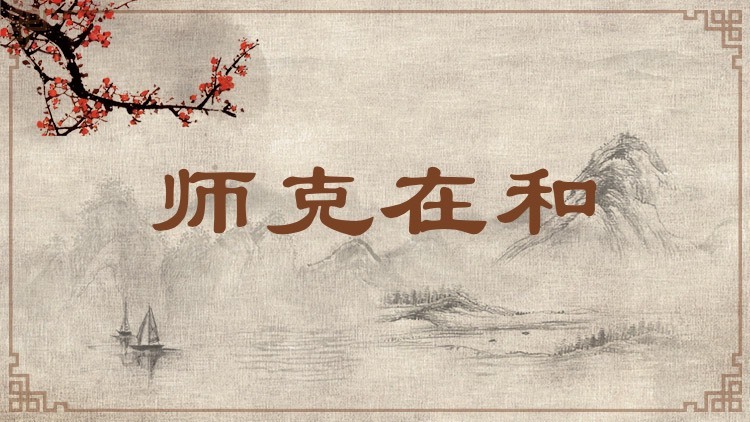To Be Victorious, an Army Must Be United

军队克敌制胜,关键在于人和。“师”即军队;“克”即克敌制胜;“和”指人和,即上下同心, 团结一致,相互协同——首先是指参战部队内部的协同,也指参战部队和非参战部队等全军的协同乃至各方面力量的协同。其基本原理与“上下同欲者胜”和“欲谋胜敌,先谋人和”相通。今之所谓“团结起来力量大”,亦是此理。
An army must be united if it wants to conquer the enemy. Shi (师) means army, ke (克) means to overcome the enemy and be victorious, and he (和) means men and officers are united and are of one mind. Coordination and cooperation are needed not only within the combat forces, but also among all other military units and forces. Similar expressions include "triumph comes when leaders and followers share the same goal," and "to overcome the enemy one must first be united." The modern equivalent is "unity gives great strength."
引例 Citations:
◎师克在和,不在众。(《左传·桓公十一年》)
军队打胜仗,关键在于人和,而不在于人数众多。
Victory in battle depends not on numbers, but on unity within the ranks. (Zuo's Commentary on The Spring and Autumn Annals)
◎师克在和。今晋和矣,未可图也。(《晋书·苻坚载记下》)
军队打胜仗,关键在于人和。现在晋朝上下很团结,不能打它的主意。
Victory in battle comes from unity. The Jin Dynasty today is strongly united, so it's not the right time to act against it. (The History of the Jin Dynasty)
◎师克在和,屈礼交盟……故能使舟师并路,远迩朋心。(《南史·陈本纪上》)
军队克敌制胜,关键在于人和,所以我们要降低身段,广泛结盟……这样能使我水陆大军一齐推进,远近之人都能同心。
A military victory depends on unity, so we should swallow our pride and form alliances with all the other sides... This way, our navy and land forces will forge ahead hand in hand, and people from far and near will be of one mind. (The History of the Southern Dynasties)
推荐:教育部 国家语委
供稿:北京外国语大学 外语教学与研究出版社
责任编辑:钱耐安





